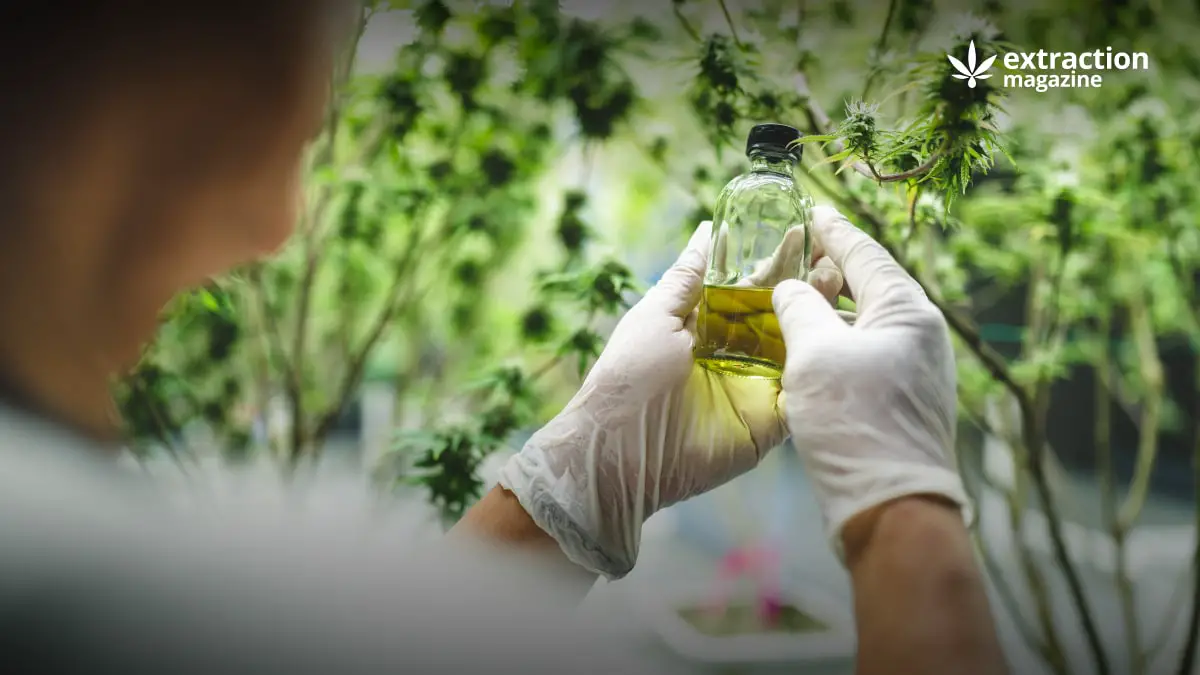The evolving landscape of cannabinoid research and product development has seen a significant shift toward the combination of two primary compounds, cannabidiol (CBD) and tetrahydrocannabinol (THC). These two cannabis derived constituents have been increasingly combined in different ratios to create novel extracts offering an array of therapeutic benefits. The surge in the popularity of these combined extracts is largely attributable to the synergistic potential that CBD and THC present when used in tandem.
Across the market, an assortment of extract products featuring different CBD:THC ratios are readily available, catering to diverse consumer needs and preferences. Ratios range from 1:1, where CBD and THC are present in equal proportions, to more skewed ratios like 10:1 or 20:1 CBD:THC, and even 20:1 THC:CBD. These different cannabinoid mixes allow consumers and researchers to explore the distinct effects and potential benefits of each combination, thereby driving the trend of CBD and THC extraction.
Benefits of Extracts Combining CBD and THC
There are many potential benefits for extracts combining CBD and THC. One significant development in this area involves the combined use of CBD and THC for the treatment of Alzheimer’s disease (AD). This approach is founded on the synergistic effect which enhances the collective therapeutic potential of both cannabinoids.
Alzheimer’s disease, a debilitating neurodegenerative condition marked by cognitive decline and behavioral impairment, currently lacks a cure. The treatments approved so far have not demonstrated any notable success in halting or slowing the progression of this disease. [1]
A recent scientific review published in the Frontiers in Neuroscience provides a comprehensive analysis of the current evidence supporting the efficacy of multi-cannabinoid formulations for AD therapy.
The study highlights the role of the endocannabinoid system (ECS), which is affected in AD, suggesting that cannabinoids, including CBD and THC, could offer potential solutions. The researchers propose that a multi-cannabinoid strategy, such as whole-plant cannabis extracts or specific CBD:THC combinations, may be more effective compared to treatments involving isolated cannabinoids.
The research concludes by affirming the viability of multi-cannabinoid combination treatment strategies for AD. The combined application of CBD and THC extracts presents a promising avenue in the quest for more effective AD interventions and suggests the need for studying the different effects of various CBD:THC ratios for other medical conditions.
Can CBD Reduce The Effects of THC?
A prevailing myth within the cannabis market suggests that CBD can counteract or reduce the psychoactive effects of THC. However, a newly published study in the Addiction journal challenges this widely held belief. [2]
The study employs a randomized, double-blind, placebo-controlled, crossover methodology to investigate the acute effects of cannabis with and without CBD in both adults and adolescents. The focus on two different age groups is significant as it provides insights into how these compounds might interact across different stages of human development.
The researchers administered vaporized cannabis containing THC, with or without CBD, to the participants. They then monitored a range of outcomes, including cognitive function, psychotomimetic symptoms, heart rate, blood pressure, and plasma cannabinoid concentrations. The study’s comprehensive approach ensures a thorough evaluation of the potential impacts of cannabis use, particularly about the presence or absence of CBD.
Contrary to the popular belief that CBD can mitigate the psychoactive effects of THC, the study’s findings suggest otherwise. Regardless of whether CBD was present, THC was found to induce psychotomimetic symptoms in both adults and adolescents. CBD did not appear to alter the cardiovascular effects of THC.
These results challenge the notion that CBD can neutralize the effects of THC if inhaled. Nevertheless significant modulation of THC’s acute effects may require pre-dosing with larger oral or intravenous administration. [2] Moreover stronger THC-induced psychotomimetic effects may be necessary before the protective effect of CBD is observed. [2]
This compelling research underscores the importance of continued scientific exploration to dispel misconceptions and deepen our understanding of these complex plant compounds.
Current trends in the market reflect a growing demand for both combined and isolated cannabinoid extracts. Given the ongoing legalization efforts and increasing societal acceptance of cannabis, coupled with the rising demand for THC specifically, these trends show no signs of slowing down.
As our understanding of these plant compounds deepens, the demand for both combined and isolated cannabinoid extracts will likely continue to grow, offering substantial opportunities for extractors.
This presents a unique opportunity for extractors who can cater to these diverse consumer needs by producing a range of extract products. Whether it’s a balanced 1:1 CBD:THC ratio, a skewed ratio like 20:1, or an extract containing isolated cannabinoids, there’s room for all these cannabis extract types in the market.
References:
- Coles, M. Et al. Therapeutic properties of multi-cannabinoid treatment strategies for Alzheimer’s disease. Frontiers in Neuroscience. 2022; 16: 962922.https://www.ncbi.nlm.nih.gov/pmc/articles/PMC9479694/ Times Cited: 5 Journal Impact Factor: 4.3
- Lawn, W. Et al. The acute effects of cannabis with and without cannabidiol in adults and adolescents: A randomised, double-blind, placebo-controlled, crossover experiment. Addiction. 2023. Volume 118, Issue 7 P 1282-1294.https://onlinelibrary.wiley.com/doi/full/10.1111/add.16154 Times Cited: 1 Journal Impact Factor: 6.34
![]()

